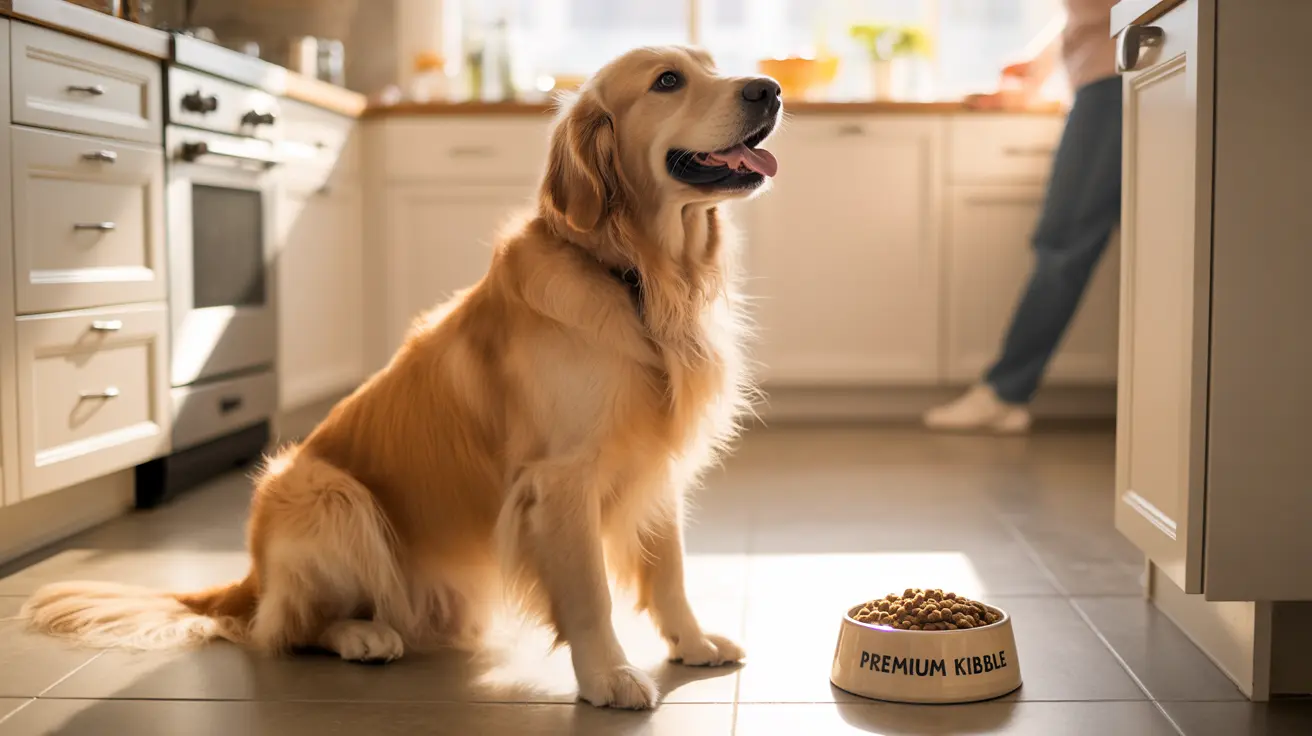As a pet owner, you might be tempted to share your sweet treats with your furry friend, but the question "can dogs eat cake?" requires careful consideration. While the occasional tiny bite of plain cake might not cause immediate harm, most cakes contain ingredients that can be dangerous or even life-threatening for dogs.
Understanding what makes cake harmful to dogs and knowing the safer alternatives can help protect your pet from potential health risks. Let's explore why regular cake should generally be kept away from your canine companion.
Dangerous Cake Ingredients for Dogs
Many common cake ingredients can pose serious health risks to dogs. Here are the most concerning components:
Chocolate and Cocoa Products
Chocolate contains theobromine and caffeine, substances that are toxic to dogs. Even small amounts can cause vomiting, diarrhea, increased heart rate, and in severe cases, seizures or death. Dark chocolate and baking chocolate are especially dangerous due to their higher concentration of these compounds.
Artificial Sweeteners
Xylitol, a common sugar substitute in "sugar-free" cakes, is extremely dangerous for dogs. It can cause rapid drops in blood sugar, seizures, liver failure, and even death. Always check ingredient labels carefully, as xylitol may appear under different names.
Common Cake Add-ins
Many cake ingredients that seem harmless to humans can be toxic to dogs:
- Raisins and grapes (can cause kidney failure)
- Macadamia nuts (can cause weakness and hyperthermia)
- Excessive sugar and fats (can lead to obesity and pancreatitis)
- Nutmeg (can cause nervous system problems)
Signs Your Dog Has Eaten Cake
If your dog has consumed cake, watch for these symptoms:
- Vomiting or diarrhea
- Lethargy or weakness
- Excessive thirst or urination
- Rapid breathing or heart rate
- Restlessness or agitation
- Bloating or abdominal discomfort
What to Do If Your Dog Eats Cake
Take immediate action if your dog consumes cake:
- Determine what ingredients were in the cake
- Contact your veterinarian or pet poison hotline
- Monitor your dog closely for symptoms
- Save the cake packaging or recipe for reference
- Follow professional medical advice promptly
Safe Alternatives to Regular Cake
If you want to treat your dog on special occasions, consider these safer options:
- Dog-specific celebration cakes from pet bakeries
- Homemade dog-friendly cakes using safe ingredients
- Specially formulated dog treats designed for celebrations
- Simple frozen yogurt treats (using dog-safe yogurt)
Frequently Asked Questions
Can dogs eat cake safely if it doesn't contain chocolate or xylitol?
Even without toxic ingredients, regular cake isn't safe for dogs. The high sugar and fat content can cause digestive issues, obesity, and pancreatitis. It's best to avoid feeding dogs any human cake.
What ingredients in cake are toxic to dogs, and how dangerous are they?
The most dangerous cake ingredients for dogs include chocolate, xylitol, raisins, grapes, macadamia nuts, and excessive sugar or fat. These can cause various issues ranging from mild digestive upset to severe poisoning and death.
What are the immediate symptoms to watch for if a dog eats cake?
Watch for vomiting, diarrhea, lethargy, excessive thirst, unusual behavior, rapid breathing or heart rate, and seizures. The severity of symptoms depends on the ingredients consumed and the amount.
How can I make a dog-friendly cake at home safely?
Use dog-safe ingredients like lean meat, pumpkin, carrots, and dog-friendly flour. Avoid sugar, artificial sweeteners, and toxic ingredients. Keep portions small and consult with your vet about suitable recipes.
When should I contact a vet if my dog eats cake?
Contact a vet immediately if the cake contained toxic ingredients like chocolate, xylitol, raisins, or grapes. Also seek veterinary care if your dog shows any concerning symptoms, even after eating plain cake.






